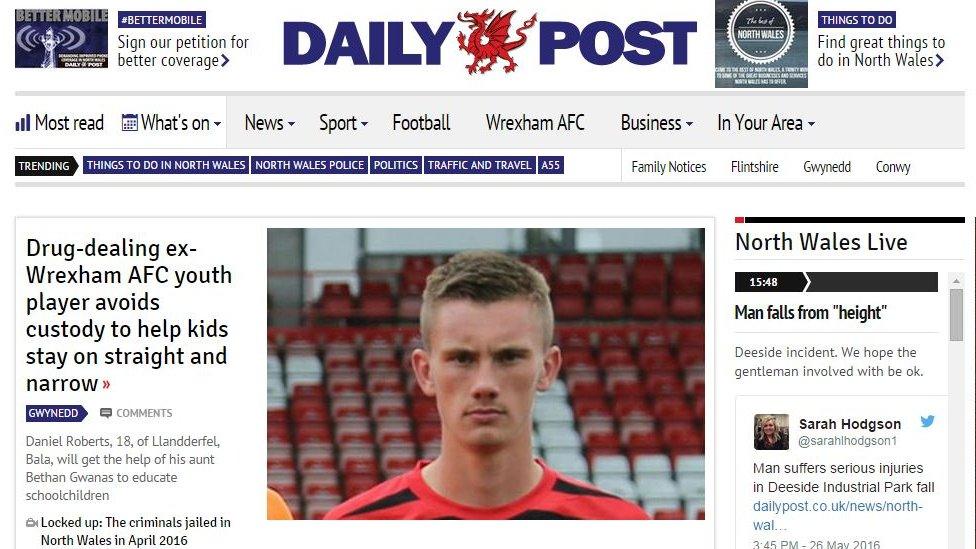Wales Online 'committed' to political stories
- Published
Paul Rowland said chasing viral stories was not going to create a sustainable readership
The editor-in-chief of Wales Online has said he is "absolutely" committed to covering politics.
Paul Rowland was speaking after sister title the Daily Post made its Senedd reporter redundant.
Mr Rowland is editor-in-chief of Trinity Mirror South Wales, which also publishes the Western Mail, Echo and South Wales Evening Post.
The Daily Post is not managed by Mr Rowland, and is published by Trinity Mirror North Wales.
He said: "We have absolutely no intention at all of removing our reporter from the Senedd.
"It is integral to our position as a national publisher, it would be ridiculous for us to remove anyone."
Mr Rowland said his newsroom was producing more political coverage than at any other time in its recent history.
"One of the areas that has not been cut in any sense, certainly in my time here in the last decade, is our political coverage.
"We produce more political coverage now than we ever have in the last 10 years. Could we do more? Absolutely, yes.
"But we are also committed to providing a mix of content for all our audiences."
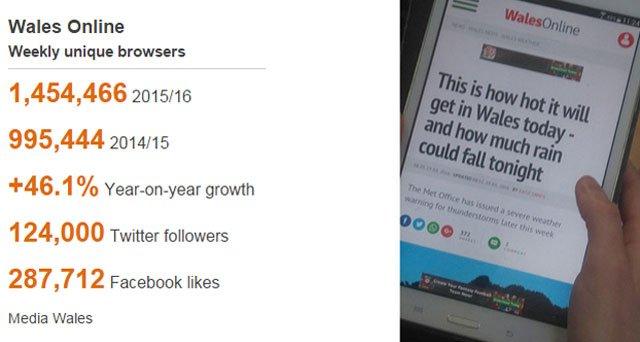
Politicians and academics have previously blamed diminishing coverage of Welsh politics for creating a "democratic deficit" of information about Welsh affairs.
But Mr Rowland argued that improved political engagement required more than an increase in press coverage.
"I think there is a much, much bigger issue in Wales around covering the political process properly than just putting pressure on us to send an extra reporter to one council meeting or another," he said.
"There is a bigger issue with regard engaging the public in politics. And using the media as a scapegoat for that only gets us so far, I think."
Martin Shipton said there was too much emphasis on writing about lifestyle and burger bars
Trinity Mirror publications have faced criticism from politicians and the National Union of Journalists for increasing their coverage of lifestyle issues, including the opening of restaurants and the publication of nostalgic lists.
But Mr Rowland said digital news titles had to cater to a wide audience, and increased lifestyle content was not at the expense of its scrutiny of Welsh affairs.
"I think it's very arrogant for us to sit here and say, 'these stories are important'. Because if a story is important then it's our job to be able to explain to our readers what's important about it. And in most cases, we can do that," he said.
"We are all interested in the same thing. We all want to see a successful Wales, we all want to see scrutiny, and we all want to see politicians held to account.
"And obviously we have a role in making that happen. And there is absolutely no disputing the fact that the media has changed in the past 10 years. I've been here since 2005 and the landscape has changed significantly in that time.
"Ultimately we are a business and we need to make profit, and we have the resource that we've got. Us suddenly doubling our resource is not going to get us to a sustainable future.
"But there are different ways we can address that democratic deficit.
"One of them is by making sure the public is engaging more with our content, and I think politicians who are making these criticisms of us have a role to play in making sure that we are able to do that, because we all have the same objective which is to engage the public in the democratic process and to have them want Wales to succeed."
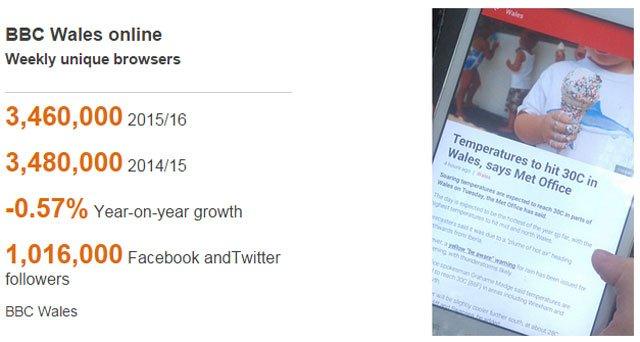
A spokesman for BBC Wales said its online services "continued to perform very strongly" this year with nearly 3.5m weekly unique browsers to its English language content.
Meanwhile, Welsh language online more than doubled its traffic to 193,000 unique browsers.
Followers of BBC Wales Facebook and Twitter accounts have also more than doubled in a year.
A spokesman added: "The Euro 2016 football qualification campaign, for example, witnessed a real audience appetite for such content. In the week Wales qualified for Euro2016, BBC Wales Sport on Facebook attracted 3.8m views.
"The other major change to which the BBC is responding to is the growth of mobile. Here we are seeing a decline in the number of desktop users and a rapid growth in users who want tailored content for mobile platforms."
- Published13 July 2016
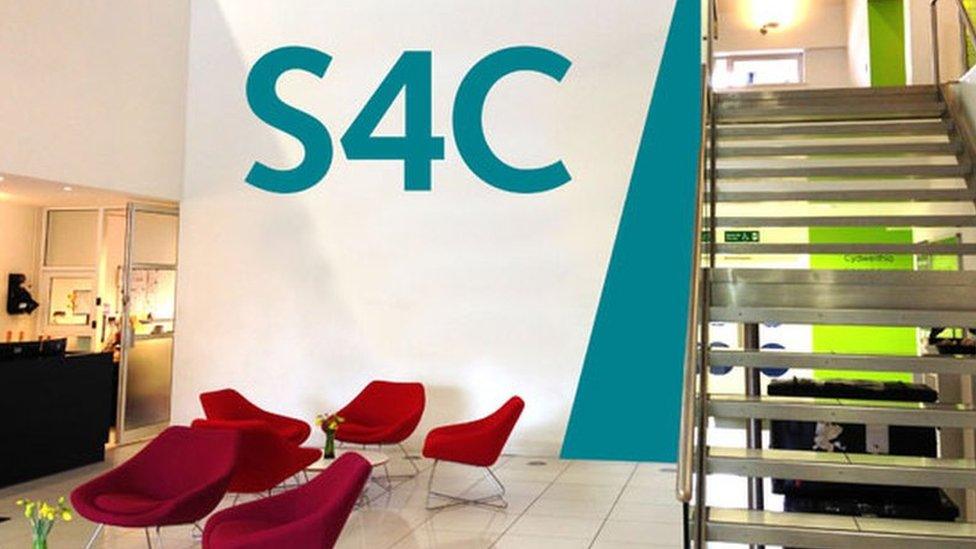
- Published12 July 2016
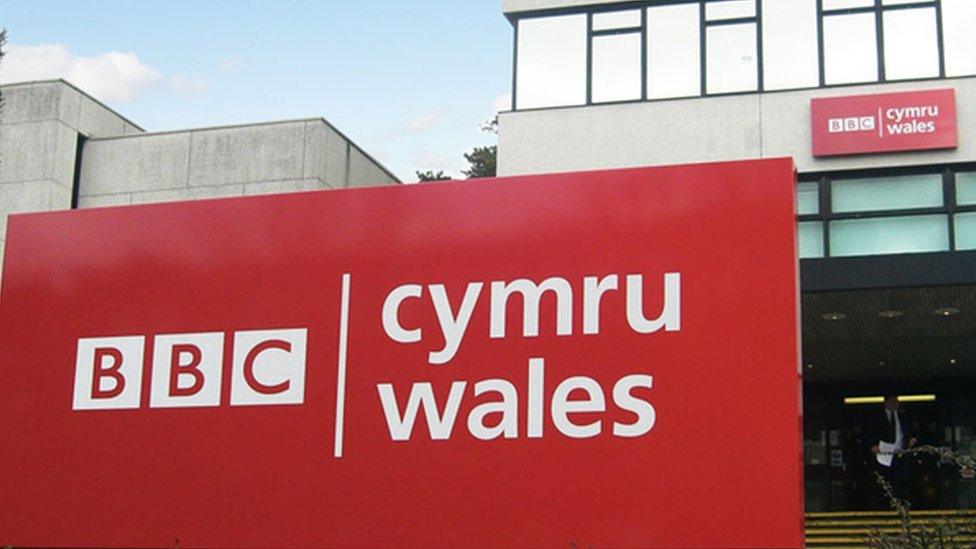
- Published22 June 2016
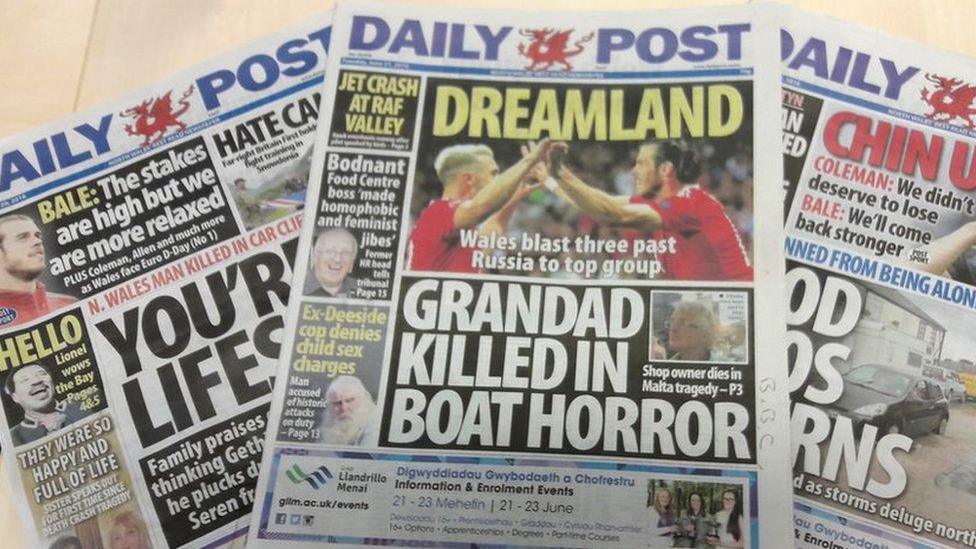
- Published26 May 2016
